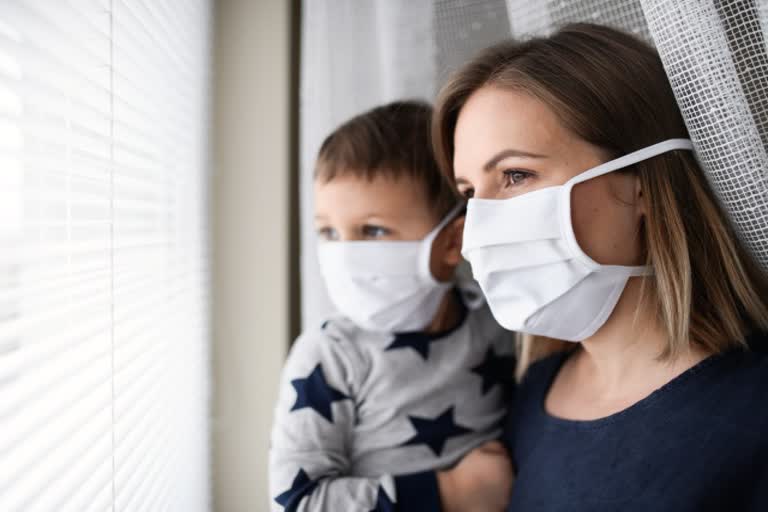Amidst the ongoing chaos that the second wave of COVID-19 has created in India, people are complaining about reinfection and being infected even after both their shots of the vaccine. But now that many people have developed antibodies against COVID-19, be it through previous infection or vaccination, is reinfection still possible? Also, once infected, why the second week and a couple of weeks post-recovery is crucial? The ETV Bharat Sukhibhava team asked these questions to Dr. Rajesh Vukkala, MD (General Medicine), Consultant Physician at VINN Hospital, Hyderabad, and here is what are his insights.
Why Is Reinfection Possible?
“The virus has been changing constantly since last year and the mutant that is infecting people now is not the same. Therefore, whatever immunity you get out of a vaccine or previous infection is a general immunity and is not particular to a specific variant. Hence, you are likely to be reinfected with COVID-19 after your first recovery, but the infection will not be as severe as in the previous case”, informed Dr. Vukkala.
Many experts and media claims state that once infected with the virus, a person builds antibodies for up to 3-6 months. On being asked, Dr. Vukkala said that the time duration after which a person may get reinfected cannot be defined. he/she may get infected with the virus again depending on several factors like age, self-immunity, associated conditions or comorbidities, as well as the viral load, i.e. the amount of virus they are exposed to. Also, how the virus is entering one's body will decide how severe the infection is going to be.
Which Is The Most Crucial Time, During And Post Recovery?
Our expert says that counting from the first day of infection, the period between 7-14 days is very crucial. To be more specific, the 7th-9th day is a crucial time to look for inflammatory responses in the body. This is the time when the viral load is at its highest after being in the body for 6 days and it creates an inflammatory response in the body. In other words, the body starts reacting to the stimulus of the virus. This is called Cytokine Storm. In Cytokine Storm, multiple chemicals are released in the body, resulting in an inflammatory process in the lungs as pneumonia, gastrointestinal issues as diarrhea, in heart as a stroke, and other organs.
Dr. Vukkala also says, “I have also seen a person’s heartbeat speeds up to 150-160 BPM, a condition known as Tachyarrhythmias. And in contrast to this, I have also seen people developing slow heartbeat around 30-40 BPM, a condition known as Bradyarrhythmias. These conditions however have been rather transient (lasting for a short period) and the reason behind this condition is Myocarditis (inflammation of the heart), which is secondary to viral infection.
